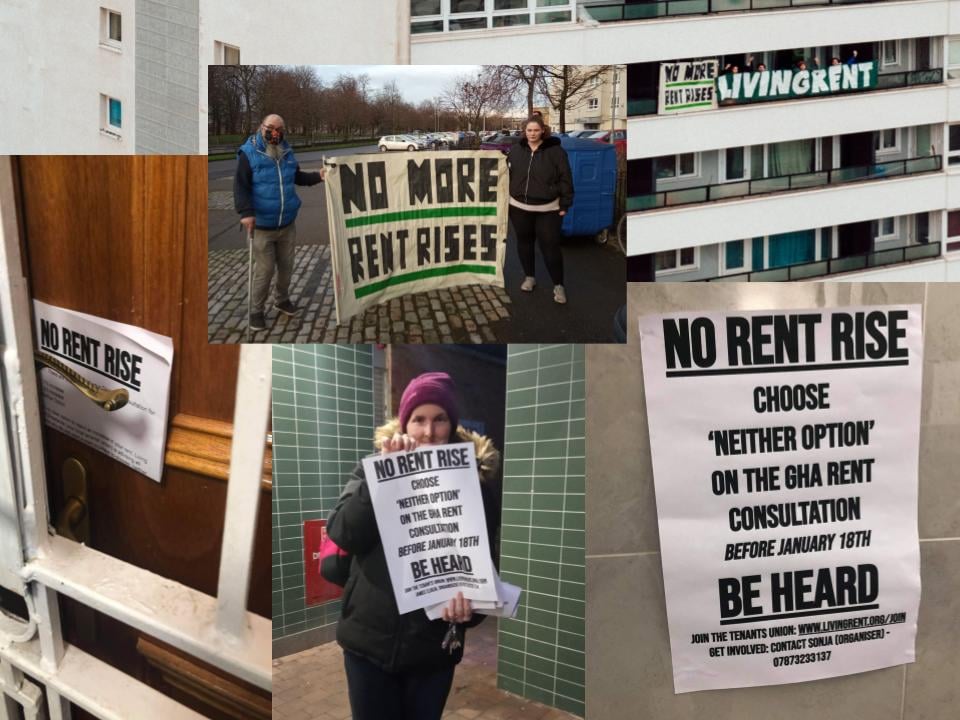Rent Freeze Warning: Housing Corporations Face €3 Billion Loss

Table of Contents
The €3 Billion Loss: A Breakdown of the Potential Financial Impact
A rent freeze's financial impact on housing corporations in the Netherlands is projected to reach a crippling €3 billion. This figure isn't arbitrary; it's a calculated estimate based on several key factors impacting housing corporation funding and financial stability.
-
Maintenance and Repairs: Housing corporations rely on rental income to fund essential maintenance and repairs. A rent freeze directly impacts this income stream, leaving corporations struggling to cover the costs of upkeep, leading to deferred maintenance and ultimately, deterioration of properties.
-
Renovations and Modernizations: Many corporations have ambitious renovation plans to improve energy efficiency, accessibility, and overall living standards. A rent freeze significantly restricts their ability to finance these crucial upgrades, potentially leaving tenants in sub-standard housing.
-
New Construction and Expansion: The Netherlands faces a chronic housing shortage. Housing corporations play a vital role in providing new rental units. A €3 billion loss drastically reduces their capacity for new construction, exacerbating the existing housing crisis. This impacts not only the availability of rental properties but also the affordability of newly built units.
-
Debt Servicing: Housing corporations often have significant debts associated with previous projects. Reduced rental income makes it increasingly difficult to service this debt, potentially leading to financial instability and even bankruptcy for some corporations.
-
Specific Project Delays: The financial strain of a rent freeze could lead to the cancellation or significant delay of crucial projects. For instance, planned renovations to improve energy efficiency in older buildings might be postponed, impacting both tenant comfort and environmental sustainability goals.
Impact on Housing Corporations and Their Ability to Maintain and Improve Rental Properties
The inability to generate sufficient revenue due to a rent freeze directly impacts the quality of rental properties and the level of service tenants receive. This ripple effect will be felt throughout the rental sector.
-
Deferred Maintenance: Lack of funds for routine maintenance will lead to a backlog of repairs, resulting in deteriorating housing conditions. Small issues left unaddressed will escalate into larger, more expensive problems. This could result in significant health and safety risks for tenants.
-
Reduced Property Value: Deferred maintenance and the inability to undertake necessary renovations will reduce the overall value of rental properties. This diminished value could have long-term implications for the overall financial health of housing corporations.
-
Tenant Dissatisfaction: Deteriorating housing conditions and lack of responsive maintenance will inevitably lead to increased tenant dissatisfaction and complaints. This could strain the relationship between tenants and housing corporations, ultimately harming the reputation of the sector.
-
Limited Renovation Resources: Ambitious modernization and renovation projects aimed at improving living standards will be severely hampered, leading to a stagnation in improving the quality of available rental housing.
The Ripple Effect: Consequences for Renters and the Wider Housing Market
The impact of a rent freeze isn't limited to housing corporations; it has far-reaching consequences for renters and the broader housing market.
-
Reduced Rental Supply: With reduced investment capacity, housing corporations will build fewer new units, further exacerbating the existing housing shortage in the Netherlands. This reduced supply will inevitably lead to increased competition for available rental properties.
-
Increased Rental Costs (ironically): While a rent freeze might seem like a solution for affordability, the reduced supply will likely drive up rental costs in the long term as demand far surpasses supply. This creates a paradoxical outcome where the intended goal of affordability is undermined.
-
Longer Waiting Lists: The scarcity of available rental properties will result in significantly longer waiting lists for social housing and other affordable rental options, leaving many vulnerable renters struggling to find suitable accommodation.
-
Market Instability: A rent freeze introduces significant instability to the rental market, creating uncertainty for both tenants and landlords. This uncertainty could discourage future investment in the rental sector, further hindering the development of affordable housing options.
Alternatives to a Rent Freeze: Exploring More Sustainable Solutions
Rather than implementing a rent freeze, which carries significant negative consequences, the Netherlands needs to explore more sustainable solutions for affordable housing.
-
Targeted Rental Subsidies: Instead of a blanket rent freeze, targeted rental subsidies could provide financial assistance to those most in need, ensuring that support is directed to renters who truly require it.
-
Increased Government Funding: Increased government funding for social housing construction and renovation projects can significantly boost the supply of affordable rental units. This would address the affordability issue without harming the financial stability of housing corporations.
-
Regulatory Measures: Implementing stricter regulations on rent increases, while still allowing for reasonable adjustments based on market conditions, can strike a balance between tenant protection and the financial needs of housing corporations.
Conclusion:
A rent freeze, while seemingly offering immediate relief, carries severe long-term consequences for the rental market in the Netherlands. The potential €3 billion loss for housing corporations would severely hamper their ability to maintain existing properties, build new ones, and ultimately, provide decent and affordable housing for renters. The current rental market crisis demands a comprehensive and sustainable solution. We need to move beyond simplistic measures like a rent freeze and explore alternative strategies for ensuring affordable housing without jeopardizing the future of the rental sector. Let's advocate for responsible housing policies that promote both affordability and the long-term health of the housing market. Find out more about sustainable alternatives to rent freezes and help build a better future for renters in the Netherlands.

Featured Posts
-
 Bianca Censoris Nearly Nude Outfit Another Bold Appearance
May 28, 2025
Bianca Censoris Nearly Nude Outfit Another Bold Appearance
May 28, 2025 -
 Data Leak Fears As New Cabinet Rules Impact Homeowner Privacy
May 28, 2025
Data Leak Fears As New Cabinet Rules Impact Homeowner Privacy
May 28, 2025 -
 San Diego Padres Head To Toronto Preview Of The Upcoming Series
May 28, 2025
San Diego Padres Head To Toronto Preview Of The Upcoming Series
May 28, 2025 -
 Increased Torpedo Bat Usage Among Marlin Fishermen
May 28, 2025
Increased Torpedo Bat Usage Among Marlin Fishermen
May 28, 2025 -
 Canadian Tires Hudsons Bay Acquisition A Complete Analysis
May 28, 2025
Canadian Tires Hudsons Bay Acquisition A Complete Analysis
May 28, 2025
Latest Posts
-
 Harvard Confronts The Realities Of Trumps America First
May 30, 2025
Harvard Confronts The Realities Of Trumps America First
May 30, 2025 -
 Live Stock Market Updates Dow And S And P 500 Performance May 29
May 30, 2025
Live Stock Market Updates Dow And S And P 500 Performance May 29
May 30, 2025 -
 Us Visa Restrictions New Rules Target Social Media Censorship
May 30, 2025
Us Visa Restrictions New Rules Target Social Media Censorship
May 30, 2025 -
 Nvidia Ceo Highlights Growing Strength Of Chinese Ai Competitors
May 30, 2025
Nvidia Ceo Highlights Growing Strength Of Chinese Ai Competitors
May 30, 2025 -
 How Trumps America First Policies Affect Harvard
May 30, 2025
How Trumps America First Policies Affect Harvard
May 30, 2025
